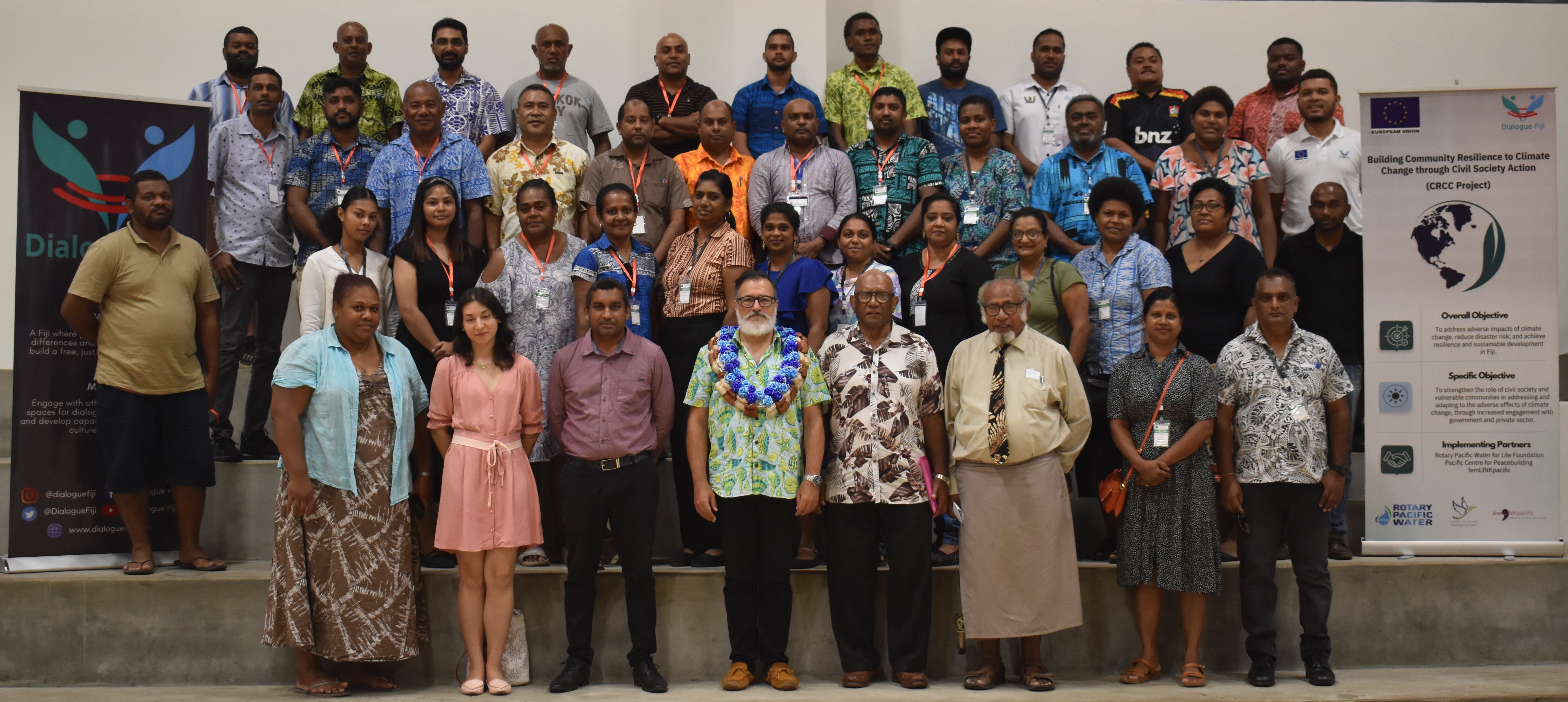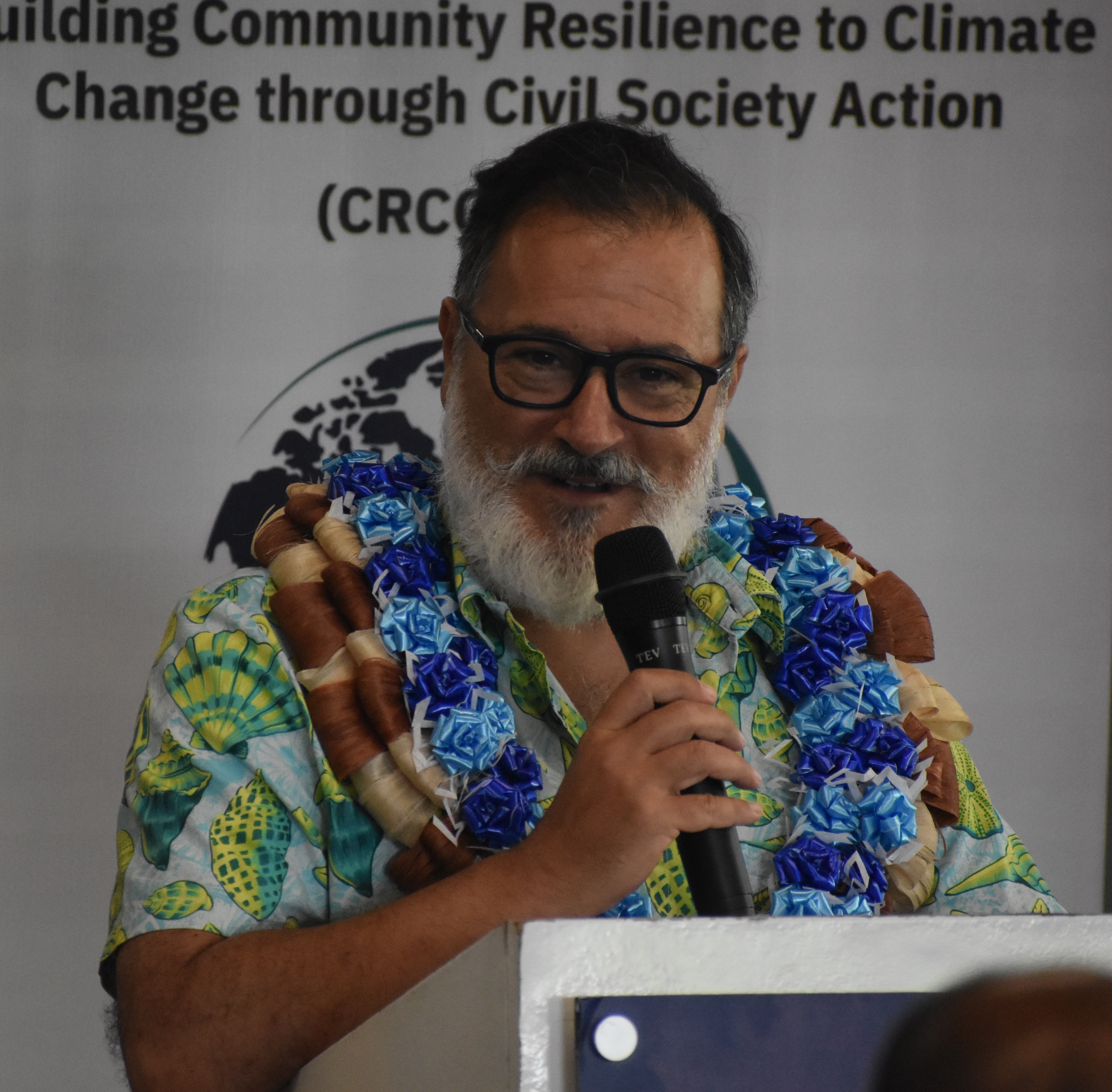Related News

By GERALDINE PANAPASA
The European Union-funded Building Community Resilience to Climate Change through Civil Society Action project implemented by four civil society organisations including Dialogue Fiji is a good example of what it means to build climate change resilience at the local level, says head of the Civil Society, Gender, Human Rights, Health” Development and Cooperation Unit, EU Delegation for the Pacific, Pedro Velazquez.
While welcoming the second cohort of participants today from the Central Division for Dialogue Fiji’s hydroponic training, funded by the EU, Mr Velazquez said the activity contributed to the broader strategy in the climate fight focused on building resilience in local communities and, using new knowledge and skills to make positive transformations in people’s lives.
“We put local communities at the centre of this world because addressing the impact of climate change and building resilience is not something that can be imposed. Local communities need to take part in this ownership. Through this project, Dialogue Fiji is training vulnerable communities on the use of hydroponics,” he said.

“Hydroponics is a climate smart agriculture technique that can mitigate the adverse effects of climate change like drought, saltwater flooding or unpredictable weather – things that can happen time and again in Fiji.
“The practice of hydroponics contributes to conserving water and maximising space. It requires less labour and produces high yields. Since 2021, 170 participants from the Northern and Western divisions have received intensive training on the use of this farming techniques and over 100 participants benefited from the online training modules under this budget.
“I commend Dialogue Fiji for the efforts they do on the ground to enhance farmers’ understanding of climate change and to implement solutions.”
Mr Velazquez said the EU in the Pacific was financing projects in the field of climate change and supporting CSOs such as Dialogue Fiji because the initiatives provided concrete and useful skills to improve livelihoods especially in communities that were vulnerable to the adverse effects of climate change.
“This happens all over the world, more particularly in the Pacific. In other parts of the world some people believe that these impacts of climate change are just a theoretical subject of discussion among scientists,” he said.
“But you’re here in the Pacific, you know this is not true, that this is a reality that you suffer every day. Here in the Pacific, the livelihoods of many people are dependent on natural resources. This is why investments in climate change represents a top priority for the EU when they decided to be here in the Pacific.”
Dialogue Fiji Executive Director Nilesh Lal said the hydroponic training was conducted as part of a larger three-year project that was implemented jointly by four civil society oragnisations based in Fiji, namely Dialogue Fiji, Rotary Pacific Water for Life Foundation, Pacific Centre for Peace Building and FemLink Pacific.
“We are thankful to the people of the European Union for making it possible for all of us. We are the direct beneficiaries and we join our hands together in expressing our appreciation. This is significant in that when it comes to climate change adaptation, we need this kind of community-centered work to happen.”
Mr Lal said helping communities who were most impacted by the impacts of climate change through initiatives such as the hydroponic training was the type of work that made a difference.
Participants of the Central Division hydroponic training also took part in the Dialogue for Sub-National Policy formulation organised by Dialogue Fiji through the Building Community Resilience to Climate Change through Civil Society Action project.
According to Mr Lal, the dialogue was part of a range of activities undertaken by Dialogue Fiji to increase community engagement with statutory authorities.